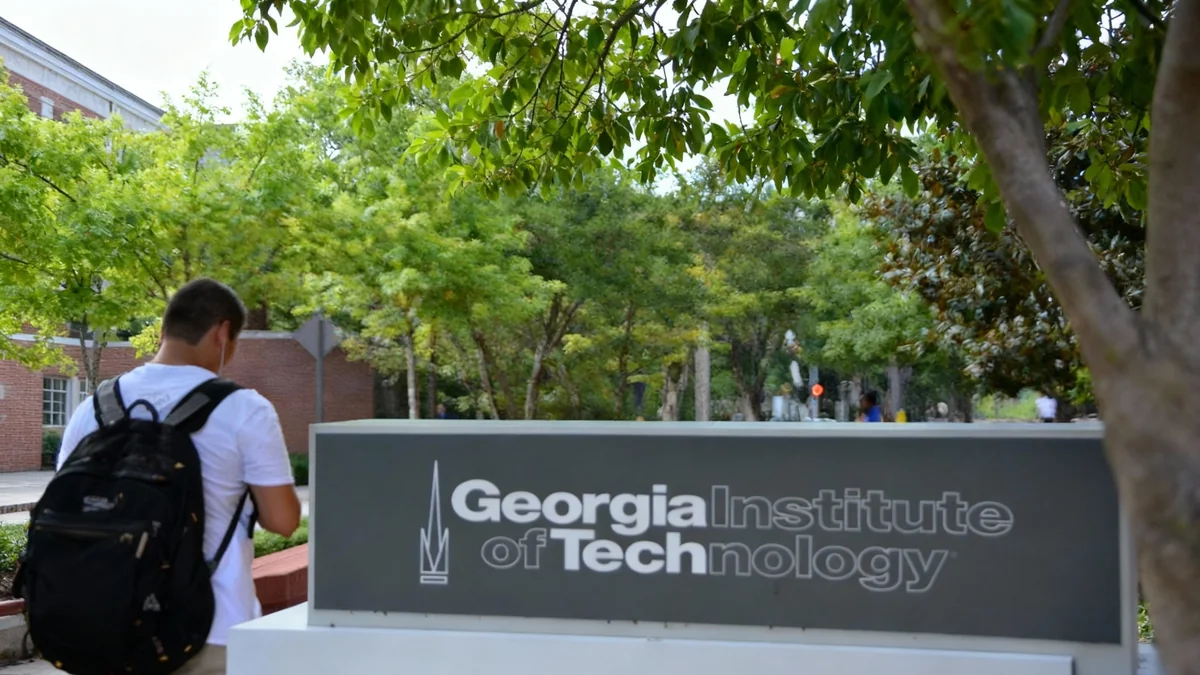The Georgia Institute of Technology has initiated a series of spending restrictions as a prolonged federal government shutdown delays critical funding for its research activities. University officials confirmed the measures are a direct response to the halt in federal payments, which support approximately $100 million in monthly research expenses.
The austerity plan aims to preserve cash and ensure essential campus operations can continue. The move highlights the significant financial pressure placed on major research universities when federal funding streams are interrupted.
Key Takeaways
- Georgia Tech is implementing spending restrictions due to the ongoing U.S. government shutdown.
- The university faces a delay in payments for federally funded research, which totals $100 million per month.
- Cuts will affect non-essential travel, new hiring, major purchases, and consulting services.
- The measures are designed to preserve cash and maintain core university functions.
Financial Strain from Federal Impasse
As the U.S. government shutdown extends into its third week, the financial consequences are becoming increasingly tangible for institutions reliant on federal support. Georgia Tech, a prominent research university, finds itself in a precarious position due to its extensive portfolio of federally funded projects.
The university's leadership has been closely monitoring the situation. With no immediate resolution in sight, the decision was made to act preemptively to safeguard the institution's financial stability. The core issue is a disruption in the cash flow that sustains a wide range of scientific and technological research.
$100 Million on the Line
Georgia Tech's federally funded research activities represent a massive financial operation, with monthly expenses reaching $100 million. The current shutdown has put these payments on hold, creating a significant operational challenge.
Kim Toatley, the university's vice president for Finance and Planning and chief financial officer, addressed the need for these new measures. She emphasized that the approach is both cautious and necessary to navigate the uncertainty.
"While we remain hopeful that the U.S. government shutdown will end soon, it is a fluid situation and we need to begin to slow spending to preserve cash and maintain essential campus operations," Toatley stated.
Austerity Measures Take Effect
The spending restrictions announced by Georgia Tech are broad, targeting non-personnel expenditures to minimize the direct impact on current staff and students. The university has outlined several key areas where spending will be curtailed if the shutdown persists.
These limitations are designed to slow the rate of cash expenditure across the institution. The longer the shutdown continues, the more stringent these measures may become.
Specific Areas of Restriction
The university has identified several categories for immediate spending reductions:
- Major Contracts and Purchases: Significant new financial commitments for goods and services will be postponed.
- Non-Essential Travel: University-funded travel that is not deemed critical to the institution's mission will be limited.
- New Hiring: The extension of new job offers will be paused to control future payroll expenses.
- Consulting Services: The use of external consultants will be scaled back to reduce operational costs.
According to the administration, detailed instructions on how to implement these cuts have been distributed directly to leaders at the college and unit levels, as well as to financial managers. This decentralized approach allows individual departments to apply the restrictions in a way that best suits their specific operational needs.
Navigating the Uncertainty
The university's executive leadership team is actively monitoring cash reserves and planning for various scenarios. Officials have indicated that if the shutdown extends into November, further mitigation strategies will be considered. The primary goal is to ensure that the university can continue its educational and research mission despite the external financial pressures.
Guidance for Researchers
The Office of Sponsored Programs at Georgia Tech is providing ongoing guidance to researchers and staff. They are advised to closely monitor their project budgets and anticipate delays in communications from federal agencies. The university also recommends that researchers download or save any necessary information from government websites, which could become inaccessible during a prolonged shutdown.
The situation at Georgia Tech is a clear example of the ripple effects of a federal government shutdown. Major research institutions are deeply integrated with federal agencies, and any disruption in that partnership has immediate and significant consequences.
Toatley reiterated the university's commitment to its core mission throughout this challenging period.
"Georgia Tech is taking a thoughtful, conservative but principled approach to how the Institute will spend resources to help us weather this shutdown and limit the effect on our students and our mission," she added.
As the situation in Washington remains unresolved, institutions like Georgia Tech are forced to adapt, making difficult decisions to ensure their long-term stability and continued operation.





